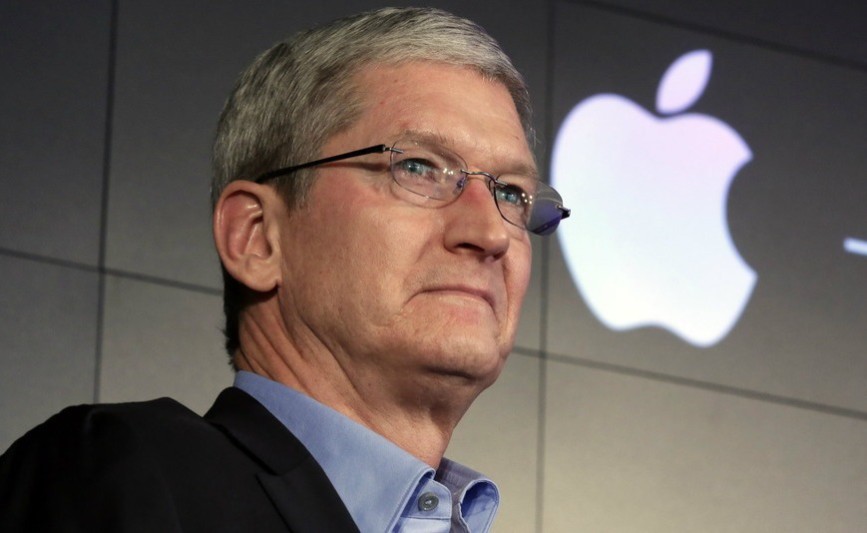Apple CEO Tim Cook: ‘This case is about much more than a single phone’

APPLE CEO Tim Cook said in an email to employees Monday that the US government should withdraw its demand that Apple help the FBI hack a locked iPhone used by a shooter in last year’s deadly shooting in San Bernardino, California.
Apple is resisting US government demands that it unlock an iPhone used by Rizwan Farook, who along with his wife, Tashfeen Malik, shot and killed 14 people and wounded 22 others at a holiday party in San Bernardino in December.
The message is accompanied by an online question and answer page that reiterates many of the comments Cook made in a public letter after a magistrate judge’s order last week. It also brushes aside several key government claims, including an assertion that the company was acting out of business interests in saying it would not cooperate with an FBI investigation of the shootings.
A US magistrate has ordered the company to break its iPhone security protocols to assist federal officials probing the December shootings. The emerging legal fight has sparked a debate on government power, privacy, digital rights, public safety and security. The county-owned iPhone was used by Syed Farook, who along with his wife Tashfeen Malik, killed 14 people during the attack.
Cook states in the letter to employees that the company has “no tolerance or sympathy for terrorists” and believes abiding by the judge’s order would be unlawful and an expansion of government powers, and would set a dangerous precedent that would essentially create a backdoor to the encrypted iPhone.
“This case is about much more than a single phone or a single investigation,” Cook wrote. “At stake is the data security of hundreds of millions of law-abiding people and setting a dangerous precedent that threatens everyone’s civil liberties.”
The email acknowledges that it is technically possible for Apple to do what the judge ordered, but that it’s “something we believe is too dangerous to do.”
Apple also points to the difficulty of keeping such a “master key” safe once it has been created. The government has said that Apple could keep the specialized technology it would create to help officials hack the phone, bypassing a security time delay and feature that erases all data after 10 consecutive, unsuccessful attempts to guess the unlocking passcode.
If the company’s engineers were to do as ordered, Apple would do its best to protect the technology, but Cook said the company “would be relentlessly attacked by hackers and cybercriminals.”
“The only way to guarantee such a powerful tool isn’t abused and doesn’t fall into the wrong hands is to never create it,” Apple states in the memo.
The company has until Friday to formally protest the ruling in court. FBI director James Comey said in an online post Sunday that Apple owes investigative cooperation to the victims and said the dispute wasn’t about creating legal precedent.
“We simply want the chance, with a search warrant, to try to guess the terrorist’s passcode without the phone essentially self-destructing and without it taking a decade to guess correctly. That’s it,” Comey wrote. “We don’t want to break anyone’s encryption or set a master key loose on the land.”
Cook said the government should withdraw its demand to the judge and form a group to discuss the issues brought up by this case. He said Apple would participate in such an undertaking.









0 Comments